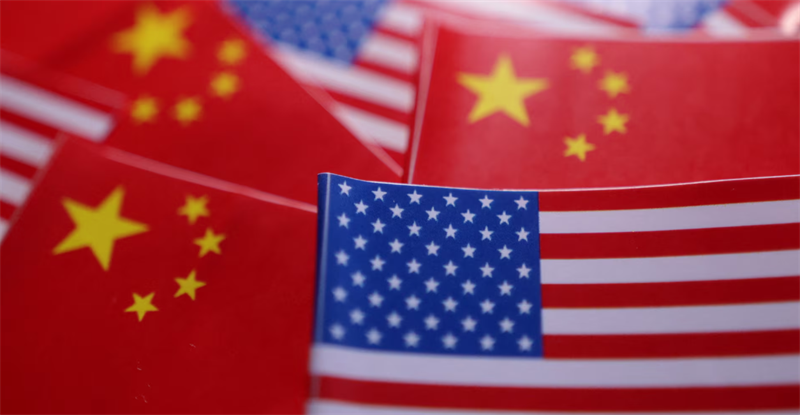The U.S. Department of Commerce's Bureau of Industry and Security (BIS) has added 54 Chinese entities to its Entity List, citing national security concerns. The decision, published on March 26, aims to curb China's advancements in AI, supercomputing, aerospace, and quantum computing by restricting access to American technologies.
Key Additions to the Entity List
March 25 Additions: AI & Supercomputing (12 Chinese Entities)
Twelve entities, including Inspur Group subsidiaries, Nettrix, and Suma Technology, were blacklisted for their involvement in high-performance computing and AI development linked to China's military. BIS claims these companies helped acquire restricted U.S. technologies, such as Intel and Nvidia hardware and Microsoft software, to support China's exascale supercomputing programs.
● Beijing Academy of Artificial Intelligence (BAAI)
● Beijing Innovation Wisdom Technology
● Henan Dingxin Information Industry
● Inspur (Beijing) Electronic Information Industry
● Inspur Electronic Information Industry
● Inspur Electronic Information (Hong Kong)
● Inspur (HK) Electronics
● Inspur Software
● Inspur Taiwan
● Nettrix Information Industry (Beijing)
● Suma Technology
● Suma-USI Electronics
These companies were identified as directly contributing to China's AI and defense technology ecosystem, with BIS stating that their activities posed a risk to U.S. national security.

March 28 Additions: Quantum, Aerospace, & Semiconductor Sectors (42 Chinese Entities)
An additional 42 Chinese entities will be blacklisted on March 28, covering quantum computing, aerospace, advanced materials, and semiconductor technology. These include leading institutions involved in China's defense modernization efforts.
● Aeronautics Computing Technique Research Institute
● Aerospace Star Technology Application
● Air Force Engineering University
● Anhui Kehua Sci-Tech Trading
● Associated Opto-electronics (Chongqing)
● Beijing Foundfresh Technology
● Beijing Graphene Institute
● Beijing Guoke Tianxun Technology
● Chengdu Aircraft Design and Research Institute
● China Academy of Launch Vehicle Technology Beijing Institute of Precision Mechatronics Control Equipment
● China Aeronautical Radio Electronics Research Institute
● Chinese Academy of Sciences Technology and Engineering Center for Space Utilization
● Chongqing Southwest Integrated Circuit Design
● Gyro Technology
● Harbin Aerospace Star Data System Technology
● Jiangxi Hongdu Aviation Industry Group
● Mohammad Reza Rajabi
● Nanjing Chunhui Technology Industry
● Nanjing Fiberglass Research and Design Institute
● Nanjing Panda Handa Technology
● National Inspection and Testing Holding Group Nanjing National Materials Testing
● Ningbo Institute of Materials Technology and Engineering
● ORICAS Import and Export (Beijing) Corporation
● Physike Technology
● Scikro (Shanghai) Instrument
● Scikro (Hong Kong) Instruments
● Shaanxi Aerospace Science and Technology
● Shanghai Aviation Electronic
● Silk Road Trading Company
● Singleton (Suzhou) Electronics Technology
● Space Star Technology
● Stratum FT Limited
● Suzhou Changfeng Avionics
● Suzhou SIP Hi-Tech Precision Electronics
● Tianjin Aerospace Zhongwei Data System Technology
● Xi'an Aerospace Automation
● Xi'an Aerospace Tianhui Data Technology
● Xi'an Sunward Aeromat
● Xi'an Xiangteng Microelectronics Technology
● Xi'an Xiangxun Technology
● Zhejiang Aerospace Hengjia Data Technology
● Zibo Topred International Trading Company
Impact on China's Tech Sector
The inclusion of these entities means they will be restricted from accessing U.S. semiconductor components, AI chips, and advanced materials. Notably, six subsidiaries of Inspur—China's largest server manufacturer—were added, with BIS alleging that they illegally acquired U.S. hardware to support China's AI and military computing infrastructure. This has triggered legal action from Hewlett Packard Enterprise (HPE), which accused Inspur of violating U.S. sanctions and patent infringement.
The crackdown also affects China's aerospace and quantum technology sectors. Chengdu Aircraft Design Institute and Beijing Graphene Institute were blacklisted due to their involvement in developing next-generation materials for military use.
U.S. Moves to Close Loopholes
BIS also identified cases where Chinese firms used third-party suppliers in countries such as the UAE, Iran, and South Africa to obtain restricted U.S. components. Several firms from these regions were added to the list for assisting China's military-industrial complex.
A Growing Tech War
This expansion of the Entity List is part of Washington's broader strategy to counter China's technological rise. While the U.S. insists these measures are for national security, Beijing has condemned them as an attempt to suppress Chinese innovation.
By tightening export controls on AI chips, supercomputers, and aerospace technologies, the U.S. aims to limit China's ability to develop next-generation military technologies, including hypersonic weapons, advanced aircraft, and nuclear
+86 191 9627 2716
+86 181 7379 0595
8:30 a.m. to 5:30 p.m., Monday to Friday
